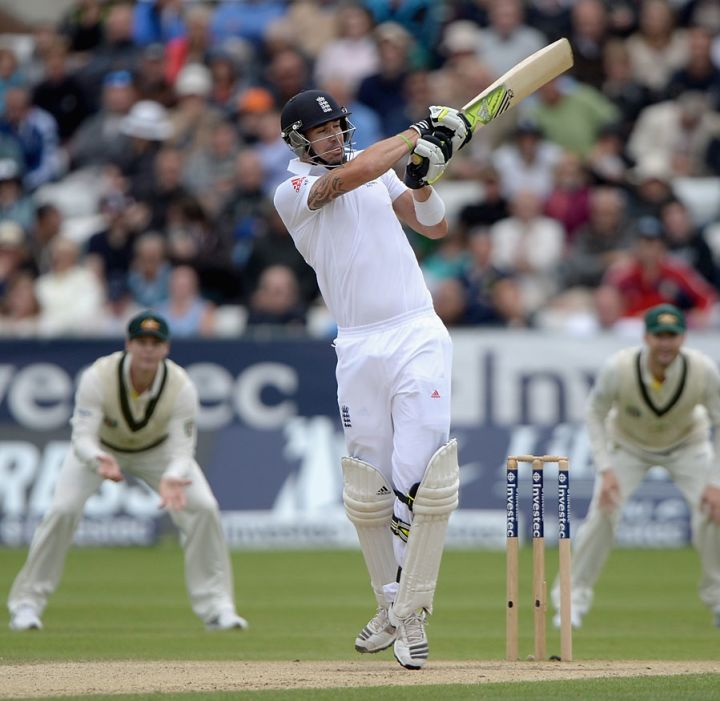Up close to greatness
A new series of lunch-time shows on Sky takes us into the minds and methods of the legends of the game

In the Great DRS Hoo-Haa Of 2013, it's not often mentioned that the system has its origins as entertainment for television viewers. It was devised by broadcasters, not the ICC, and it is involved in the game itself because it created an anomaly: the people sitting at home knew more about what was happening than the players and umpires. Television is the great driver of the game in this new century, central to its formatting and scheduling and financing: it is the force that shapes cricket.
It also has its own internal demands. It needs to keep innovating. The more hours it broadcasts, the fresher it must seem because it is a force that eats itself. In the UK, where the broadcast rights holder is Rupert Murdoch's football-obsessed, deep-pocketed Sky, the strategy has been to employ a stream of garlanded ex-pros - there is a shimmering yellow-brick path from the embers of retirement to the Sky studio lights. Almost everyone in the Test match "comm box" is a former England captain or an international star. Shane Warne and Andrew Strauss have been the latest to join.
For a while this simply created a homogeny of voice, an excuse to peddle cliché and banter. Now, though, there is a new generation of ex-player, one who has played a game that is deeply analysed, who has thought nothing of walking from the pitch to watch a playback of their innings or spell, who has spent many hours with statisticians and coaches, looking for the incremental advantages that emerge from previously hidden patterns.
This self-awareness has made its way onto the screen at Sky with Ian Ward's Masterclasses. At each of the Tests, they have taken over a net during the lunch break, where Ward, a warm and unforbidding on-screen presence, has teased some gems from his subjects. He persuaded Andrew Strauss to face a bowling machine set to 90mph, had a one-on-one with Kevin Pietersen, and staged an enthralling recreation of a Shane Warne bowling spell, with Strauss and Nasser Hussain as the batters facing up to the old master once more.
Pietersen is totally at odds with the written press in England, and Ward's Masterclass subtly suggested why. It revealed a player who thinks deeply about his game, whose method is founded on abiding logic and self-knowledge rather than on ego. The passage on the flamingo shot, which he developed to challenge the monotonous dominance of fast-medium bowlers like Glenn McGrath and Shaun Pollock, and the switch hit, which has its roots in his brothers making him bat left-handed during games of backyard cricket, revealed something of the man and his acceptance of risk in batting. If there is any element of instinct in what he does, it is not in his technique but in his reading of the game, the way he is in tune with its ebb and flow. Instinct tells him when the moment is at hand, but the execution that follows is practised endlessly. His second-innings dismissal in Durham by Nathan Lyon was an occasion where Pietersen had perhaps even over-thought method.
Shane Warne's greatness is unchallengeable, and his Masterclass again underlined the rigid and powerful thought processes that run beneath his natural creativity with the ball in his hand. Here was a player who speared batsmen with the routine of a hunter, preying on doubt and fear, producing a mindset that offered him an instant advantage. He showed Ward how he assessed a wicket, how he found, within his first six deliveries, what his stock delivery for a spell would be, and how he would build on that to set a batsman up, a trap then sprung with perfect execution. One of the chasms between the professional game at the highest level and everyone else lay here.
None of this was a mystery to the batsmen facing Warne, and that too is part of the professional mindset. They encounter one another consistently, and it builds a rolling narrative, each adjusting his methods to counter the evolving skills of the other. In this, Ward has hit upon a way to illuminate a little more of the game. It has been terrific television, and another small step forwards for the broadcasters.
Read in App
Elevate your reading experience on ESPNcricinfo App.